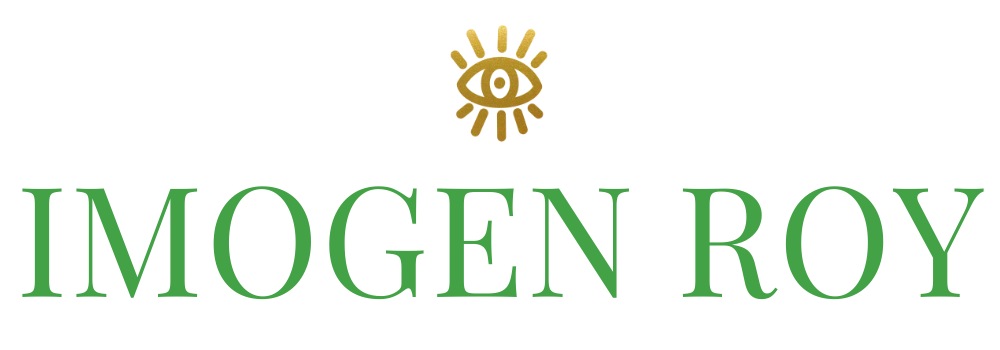Q&A | Boundaries
Are you frustrated by ways of working that drain your energy, yet you feel powerless to change them? This episode is for you.
I share an A to a Listener's Q about context-switching, client expectations and not feeling in control.
Listen to hear a few practical ideas for managing your energy well – even when you can't control 100% of your working environment.
Q:
I'm a freelancer offering services. Although the services and packages I offer are the same for each of my clients, they all prefer to work on different systems. The result? I end up spread across at least three platforms, and the context switching is draining. But if I were to be inflexible, I wouldn't be able to work with these kinds of clients. How can I find a middle ground between my clients’ ways of working and my own needs?
A:
Thank you very much for sharing this with the Magical Living community. As a former freelancer of marketing and brand strategy services, I myself have lived with this problem, and I'm sure many of you listening now can resonate with this conundrum in one way or another.
The first thing I want to say is that I detect a problem under your problem and a question under your question.
You said that your problem is that you're currently working across many systems when ideally, you'd love just to work with one. But because of the size of the clients that you work with, they have their own embedded tech systems, and you don't have influenced to change them.
I detect there may be a deeper, less tangible problem underneath this.
My suspicion is that this has got something to do with potentially untested assumptions about what your clients expect from you, and the resulting emotional vigilance is extremely energetically draining to you.
The Nefarious Impacts of Context Switching
Let me address the topic of context switching.
Context switching is the different ways in which we're using our attention and the different flavors of energy that they require. In quick succession, context switching can be incredibly confusing for the brain, and very, very tiring.
There are two main ways in which context switching, or multitasking, has nefarious effects on our bodies.
1. This fractured and frantic attention distorts our relationship with time and also causes memory loss.
If you want to learn more about this, but most importantly, how to change this, I invite you to watch the time-bending video that I posted to Instagram last year. In this video, I go into the effects of what multitasking does to us, and how to change our relationship to it and time. When we stop having fractured attention, we have more time and energy.
2. Context switching can cause email apnea.
Email apnea was offered to us by a Microsoft researcher called Linda Stone. Linda found herself experiencing a strange phenomenon when she was busy in her inbox. She realized she was experiencing mild anxiety and dread around reading and responding to her emails, and she would catch herself holding her breath for no real reason.
I also experienced this when I worked in corporate. There was a culture of constant emailing, and I would catch myself holding my breath. I didn't realize it was an actual thing until I read Linda Stone’s research. With the constant checking of notifications and the anticipation for emails to arise, this sends us into freeze mode (as in fight, flight, or freeze). Our bodies go into a panic freeze and activate the body's stress response. I go into the impact of the body's stress response and how to end a stress cycle in Episode 9 about Shaking.
You can understand how over a span of weeks, months, years, decades, the enormous drain and physical symptoms that can arise from living in this way.
Try These Three Energy Management Experiments
Dear listener, you may not get to control the platform, system, or messaging service that your clients are using, but you get to control the pace with which you use them. You get to control when and where you receive notifications, messages, updates, and you get to control when and how you respond. You also get to control when and how you stop to rest and recharge your energy throughout the day.
I invite you to consider that you could potentially radically transform your experience of working with your clients across these platforms, without making any visible changes whatsoever.
So let me share three things you could try.
1. Reclaim your attention and agency by changing your relationship to your notifications.
We live in this culture that’s always on. But ‘always on’ is often not actually expected and is rarely explicitly demanded. Most of all, it is rarely needed, especially not every day. Even so, we carry this assumption that we need always be responding.
However, being always on can actually decrease our value. This behavior takes us away from doing the actual work that's in our expertise; it can lead to a decrease in the quality of that work, because of the aforementioned impacts of context switching. Being constantly available can decrease the quality of our work, and have long-term negative effects on our reliability as a result.
You mentioned Slack, Microsoft Teams, and email, so I'm going off the basis that these are platforms for communication.
I offer this suggestion that I myself tried as an experiment in my original Year of Magical living in 2019 when I was trying to heal from my burnout. Try reserving five minutes out of every hour to turn on your notifications, open your inboxes to check what is there, triage, and see what needs to be responded to. That gives you 55 minutes of the hour to focus on your work.
When I tried this experiment, I was terrified to take this action. But I learned that nothing actually happened. As far as I know, none of my eight clients even noticed a difference because responding to something within an hour is perfectly adequate 99% of the time. And for the 1% of urgent back and forth emergencies, you can either feel your way through that when it happens and adjust accordingly, or have a protocol in place with your client whereby there is a route to reach you if there is a genuine emergency that only you can solve.
You may try creating this boundary around when you put your attention onto these platforms and how you use them. If checking messages only once an hour feels really scary, you can start with every 30 minutes, and see how that goes. Test the impact. If it feels safe, you can then increase that time, perhaps even once an hour becomes too much. You can even do it once a morning or once a day, depending on your field of work.
You may find that this changes the way you’re showing up at work. You may feel less frantic, less rushed, less stressed, and create better work, better quality of relationships, and better communications.
2. Start batching according to your energy levels.
I want to speak specifically about how, what, and when to batch. Become aware of the flavor of attention or energy that is currently working for in the present moment.
For example, if you open up your inbox and you start firing responses to a few things, and you feel in flow, embrace that energy. Tackle all the outstanding communication. Use the energy until you feel it dissipate and then shift.
Likewise, maybe you're creating assets and feel yourself enjoying this creative energy. See what else you have on your Could-Do list that requires that particular creative energy, and take it as far as you can.
If you're in number-crunching mode, use it all.
If you're in tidying up mode, use it all.
Use the energy you have to get ahead of yourself and begin batching in an energetically conscious way.
3. Have more direct conversations with your clients about expectations and boundaries.
You mentioned that context switching between the platforms is tough, but my hunch is that the biggest energy drain of all is the emotional labor that you're doing around the uncertainty of what each client expects from you. The fastest way to eliminate this exhausting emotional labor and uncertainty is to have a conversation.
It can feel frightening to have a direct conversation with a client, manager, or boss to clarify what they expect from us. It can also be so enormously empowering and can give us so much information about what we need to focus on, what's important, and most importantly, what we can let go of because it's not an issue.
For example, when entering into a new client relationship you may want to lay down your own boundaries and clarify where that where their boundaries are.
You can say things like, “It's so great to be working with you. Here's how I know I work best to deliver this work. I want to give you a heads up so you know what to expect when it comes to communication and my ways of working. I understand that I need to work on your system, which is fine. But here's what that means for me and what to expect.”
Likewise, you can ask them questions. “What are your expectations around working together?”
If there are any places where it doesn't add up, you can ask them, “Okay, that's great, that's good to know that we have these differences. How can we make this work better for both of us?”
You may also focus their attention on what's at stake here, especially since you’re selling your expertise and experience, not your response rate or availability. Bring their attention to what's most important in the relationship. You can say things like, “Here's what I've understood is most important to you from your brief, which is why I'm prioritizing getting ahead with focused work on this project, as opposed to responding straight away to every message. Do you see this differently? Let's have a conversation about that.”
You have so much more agency than you may think. You might not get to choose the tech platform, but you get to control the pace at which you use it. You get to choose how and when to use your attention and energy. And you get to choose which conversations to have with your clients or not.
Thank you for sharing this great question with the Magical Living community. I encourage you, question asker, to try these three ideas and see if any of them resonate.
Listen to the Full Episode:
Episode Resources:
Linda Stone's research into 'Email Apnea'
My video on Time-Bending and reversing the negative impact of context-switching and multi-tasking
EP 9. Practical Magic | Shake It Off
EP 10. Practical Magic | Use Everything
Got your own productivity conundrum that is getting in the way of magical living? Share it with me so I can address it in a Q&A episode soon.
Pin This Episode for Later:



